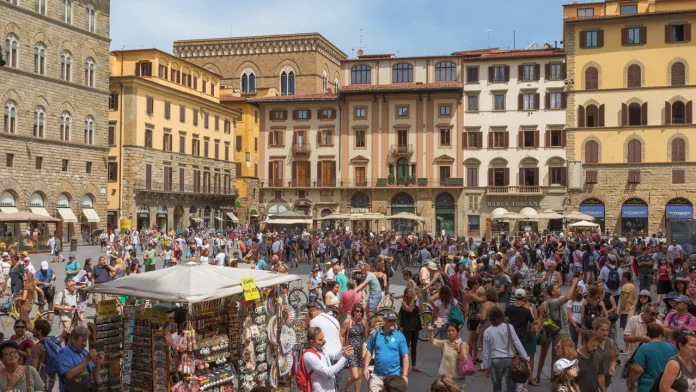The city of Florence, one of Europe’s major tourist destinations, is taking proactive steps to address the challenges posed by short-term rentals, including Airbnb. The city plans to ban new short-term rental registrations in its historic center, a UNESCO World Heritage site, with legislation expected to be in effect by November.
This move is in response to concerns about overtourism, rising rent prices, and residents being displaced from the city center due to the proliferation of short-term rentals. Currently, 75% of short-term rentals in Florence are concentrated in just 5% of the city’s territory, primarily in the centro storico.
Under the proposed legislation, new registrations for short-term rentals in the historic center will be prohibited. To incentivize long-term residential contracts, property owners who convert Airbnb listings into long-term rentals will receive a three-year exemption from property taxes on the building.
However, the law will not apply retroactively, allowing existing short-term rental contracts to continue. Since the announcement of these changes, approximately 4,000 new registrations have been made, with some properties already operating illegally.
Mayor Dario Nardella emphasized the importance of protecting Florence’s cultural and material identity and addressing the rent increases associated with the short-term rental boom. He called for national legislation from the government to regulate short-term rentals and expressed the city’s commitment to addressing this social emergency.
While some have welcomed these measures, others have raised concerns about individuals renting out rooms in their own homes to offset costs. A spokesperson for Airbnb acknowledged the challenges faced by historical cities and expressed the company’s desire to help through clear and simple national regulations for short-term rentals in Italy.
Critics argue that the proposed legislation may not go far enough without sufficient inspections and enforcement to tackle the non-professional and unregulated aspect of the short-term rental sector. They believe that professionalizing the sector could lead to a natural reduction in the number of Airbnbs.
Florence joins other cities, such as New York City, Amsterdam, and Berlin, in implementing restrictions and regulations on short-term rentals to address housing and overtourism concerns.



